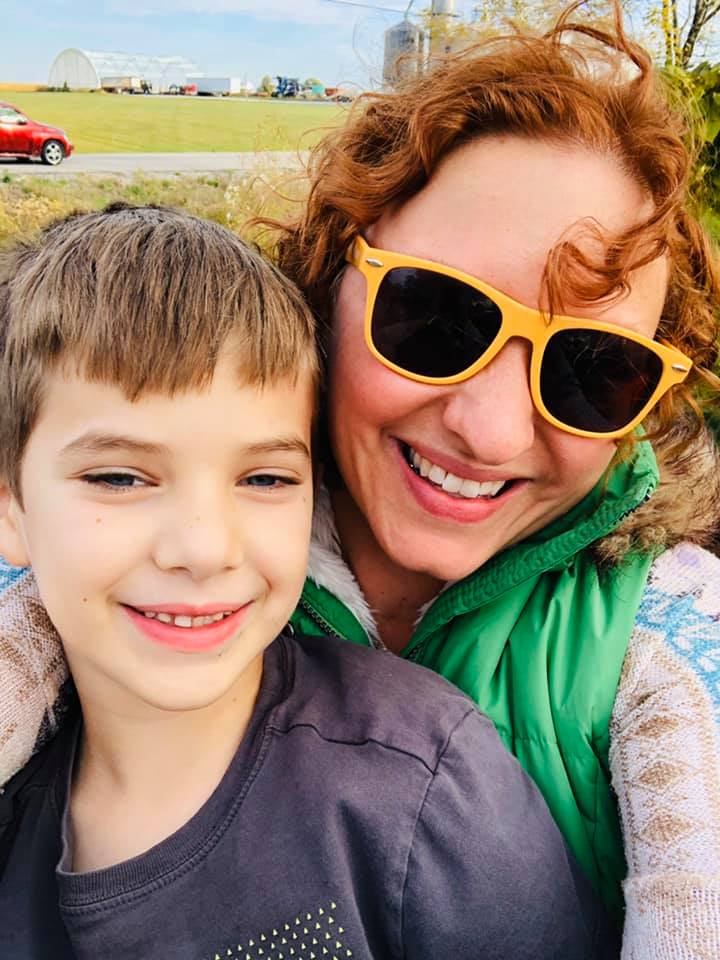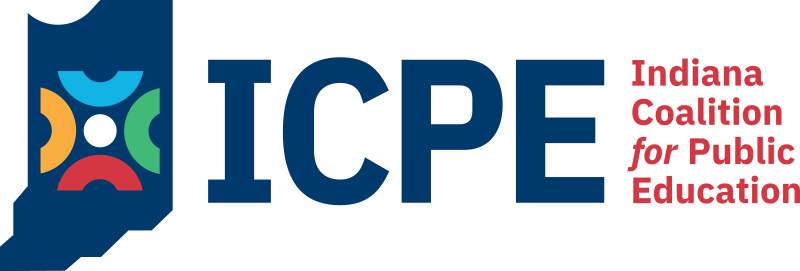“Choices” to non-public schools that cannot or will not adequately serve students

Many thanks to Carla Schmid, a special needs parent who testified in opposition to HB 1005 in the House Education Committee hearing. She joined us on ICPE’s special Presidents Day Zoom webinar. Please find her remarks below.
“Hello, everyone!
My name is Carla Schmid. I am an Indy native and a product of both public and private education. Professionally, I have taught in public and private school settings and now work for a 501c3 that supports K-12 public education. My two children, Lyra and Cody, attend Washington Township Public Schools and both receive special needs services through our district.
I’m here today because the passing of HB 1005 and SB 412 & SB 413 would not only threaten my children’s future, but the future of the over 90% of Hoosier children who attend public schools.
Our journey as special needs parents began when Cody was diagnosed with Autism Spectrum Disorder at two years old. At that time he was completely non-verbal, did not respond to his name, and spent the majority of the day laying on his side rolling a car back and forth while humming to himself. We were scared, vulnerable parents who had no idea how to best support him and what his future would look like. After aging out of First Steps, we were directed to apply for services through Washington Township public schools. We also researched private options–ABA centers were the only specialized programs offering developmental preschool and elementary options that we could find related to autism–and ALL of them were completely out of our middle class income possibilities. Had we received the Education Savings Account funds that this bill seeks to establish, that money would barely put a dent in the annual cost of part or full time ABA.
Cody went on to attend Washington Township’s Developmental Preschool and received intensive speech, occupational, and physical therapies by licensed professionals who monitored his progress daily. During that time, Cody began to answer questions, follow directions, and began to engage with the world around him. At age five he wasn’t quite ready for mainstream school, his language and social delays were still quite substantial. Through our Township, we were able to send him to a transitional Kindergarten program, supporting him with a much-needed extra year to grow in these areas. This transitional year gave him the solid bridge he needed in order to be ready for mainstream Kindergarten–and all the while his licensed therapists and teacher made classroom visits and made sure that his IEP goals were being met.
In the fall of 2019, with tears of joy streaming down our faces, my husband and I waved goodbye to Cody as he joined his sister on the school bus and made his way to his first day of mainstream kindergarten. When Cody was two, if you would have asked me if I thought that moment would have been possible, I would have said no. He is now in 1st grade and continues to thrive at our neighborhood public school with a part-time aid and many supports in place.
This is our story. None of it would have been possible without fully funded public schools. There is no Educational Savings Account that could touch the price of the services our son has received, under licensed professionals with quantifiable education goals that must be met.Taking money away from a system that has built-in accountability and is working, in spite of budget cuts and the harm that vouchers have created, makes no sense. These bills give special needs parents “choices” to non-public schools and programming that cannot or will not adequately serve them. I am also especially afraid that the ESA’s would make special needs parents and children vulnerable to charlatan, non-research-backed “therapies” and products that at best don’t work and at worst, might actually harm a child.
I am also especially afraid that the ESA’s would make special needs parents and children vulnerable to charlatan, non-research-backed “therapies” and products that at best don’t work and at worst, might actually harm a child.
Indiana’s voucher system already deprives every public school system in Indiana $172 per student. Expanding this already harmful program even further is wrong. We are living in unprecedented times where our public schools have had to carry the burden of this pandemic almost entirely alone–with little to no support from government agencies. Decreasing the K-12 tuition budget, which HB 1005 and SB 113 and 114 would absolutely do in order to pay for these Education Savings Accounts and voucher expansion, would be a disservice to every educator, school counselor, therapist, bus driver and administrator who has reached out to feed and support families since COVID-19 hit. Public schools are the backbone of our community. Weakening them, especially now, is unconscionable.
I will be watching the state budget and the remainder of the session closely and urge you to write your legislators in opposition to these harmful bills that would effectively weaken and take more money away from our struggling Indiana public schools and the special education programs my children, and so many, depend on.”
